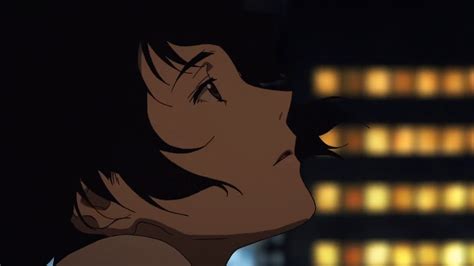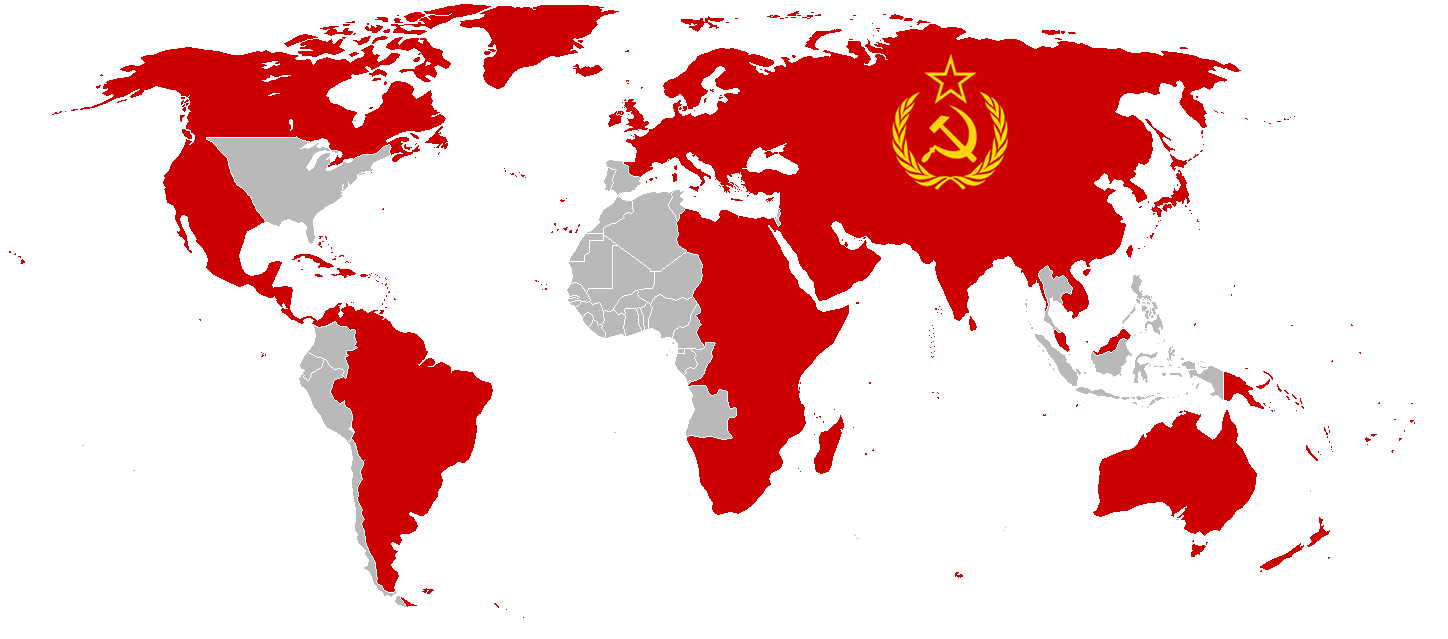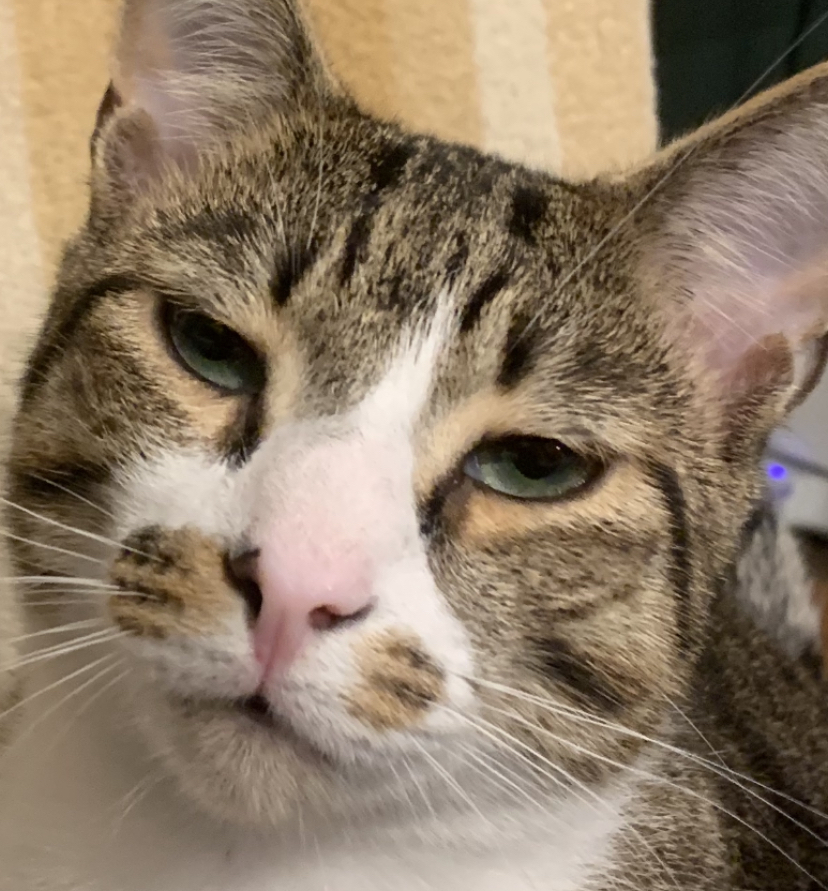Many ancient and indigenous societies were able to function very efficiently with a communist government, I don’t see why Laos, Cuba, Vietnam, and Venezuela’s attempts have been so terrible in the way that they are completely authoritarian. The Iroquois Nations’s democratic government was basically the foundation of the US’s democratic government, and they were also a communist society. So I see many examples of primitive communism being able to function. I even found out about an Indian state called Perula that is also a successful comminist state. I don’t see why we can’t make communism and socialism work out in countries like Laos, Cuba, Vietnam, and Venezuela. Forgive me if anything I said is wrong.
- Read Engels’ pamphlet On Authority.
- Laos, Cuba and Vietnam are doing very well considering the constant threat of imperialism, and genocidal US sanctions in Cuba’s case.
- Venezuela is not communist, but the government is guided by Bolivarian socialism and is doing fairly well considering, again, the genocidal US sanctions.
- The US does not have a democratic government by any stretch of the imagination.
- I’m not aware of any Indian state called “Perula”. If you mean Kerala, it’s still subject to the national government and therefore extremely limited.
- Communism can’t feasibly be implemented in only one country, and certainly not while imperialism still exists. There is an absolutely necessary transitional stage, the dictatorship of the proletariat, which currently exists in all AES countries.
- “Communist state” is an oxymoron.
What’s a key difference between pre-colonialist Iroquois society and modern Cuban society?
The Iroquois didn’t have to fend off reactionaries in order to maintain their sovereignty. They along with every other Indigenous nation all but collapsed shortly after colonialist powers arrived. Primitive communism may work great in relatively small groups with no serious external forces working against them, but it stands no chance against colonial or imperial violence.
How has Cuba survived three generations as a people’s state right in the clutches of the global hegemonic empire? By walking the socialist road. If and when that requires actions of a forceful and/or authoritarian nature, so be it. The people have chosen to defend their state and their sovereignty over certain domination by a belligerent reactionary. They know their preferred destination, and they know how to work towards it.
Yes, it’s authoritarian to defend one’s sovereignty. Does that have to be such a bad thing?
Maybe State and Revolution is coming up on your reading list soon for more depth on this topic.
Because if you don’t protect yourself from the reactionary forces of the world, you and your comrades will be murdered and you will never achieve your goals. If you don’t want to read theory, how about a quote from a history book, The Jakarta Method? (Which I highly recommend you read all of btw)
quote here
This was another very difficult question I had to ask my interview subjects, especially the leftists from Southeast Asia and Latin America. When we would get to discussing the old debates between peaceful and armed revolution; between hardline Marxism and democratic socialism, I would ask: “Who was right?”
In Guatemala, was it Árbenz or Che who had the right approach? Or in Indonesia, when Mao warned Aidit that the PKI should arm themselves, and they did not? In Chile, was it the young revolutionaries in the MIR who were right in those college debates, or the more disciplined, moderate Chilean Communist Party?
Most of the people I spoke with who were politically involved back then believed fervently in a nonviolent approach, in gradual, peaceful, democratic change. They often had no love for the systems set up by people like Mao. But they knew that their side had lost the debate, because so many of their friends were dead. They often admitted, without hesitation or pleasure, that the hardliners had been right. Aidit’s unarmed party didn’t survive. Allende’s democratic socialism was not allowed, regardless of the détente between the Soviets and Washington.
Looking at it this way, the major losers of the twentieth century were those who believed too sincerely in the existence of a liberal international order, those who trusted too much in democracy, or too much in what the United States said it supported, rather than what it really supported – what the rich countries said, rather than what they did.
That group was annihilated.
- Vincent Bevins, The Jakarta Method
The Origin of Family, Private Property, and the State is essential reading. Matrilineal primitive communism was defeated by the emergence of agriculture and the division of specialized labor and alienable property and inheritance. Whereas once the tribe lived together and worked together (my sister’s child is my child) we began to specialize into classes and ascribe private ownership to parcels of land and then animals and then tools and then conquered people to work those lands and animals and tools.
We can’t turn back the clock and uncivilize the world back into that time before the emergence of monogamy and property and the state, because now there is a ruling class that must be defeated. How do you propose we defeat them without so-called “authoritarianism”?
Laos, Cuba, Vietnam, and Venezuela’s attempts are made under imperialist siege. Never forget this.
I don’t see why Laos, Cuba, Vietnam, and Venezuela’s attempts have been so terrible in the way that they are completely authoritarian.
What’s your source here?
What do you mean by authoritarian?
Doesn’t Cuba hold elections every 2 years or so? Even though they’re a one party state, which is not regarded as democratic by the west because of what it considers to be the norm in this regard, I’d say the Cuban system is pretty enticing. I imagine it would make socialism extremely hard to pull through, if the party could just be voted out after a few years. Also we know Capitalism is an inhumane system based on exploitation of both humans as well as animals and our planet in general, so banning a party that wants to defend such a system makes sense to me.
Obviously I am a proponant of democracy and I’d love to see a socialist country make their system work better than Cuba has in regard to allowing other political parties, but I don’t see that happening, as long as the west under the leadership of the US, is so keen on squashing every bit of communism there is. I’m keen on hearing what others think abt this opinion though.
Could you explain in what way these societies had communist governments? I am not saying you are wrong, just that it’s good to have it spelled out.
These societies practiced something known as “primitive communism” a term that is…very outdated to say the least.
Essentially, pre-modern societies could sometimes form a type of societal structure similar to communism, with fairly even distribution of resources and little to no societal hierarchy, or a very flexible hierarchy that changed based on what skills the leadership required. A lot of unrelated societies throughout history have been this way. In an ideal world we could just press the big red communism button and return to a more egalitarian society, but unfortunately we don’t live in that world.
Other comments have recommended “State and Revolution” and “The Origin of Family, Private Property and the State” as reading material on this topic. Both are excellent resources, but “Origin” is probably what you’re looking for to explain the Marxist viewpoint on this subject.
In an ideal world we could just press the big red communism button and return to a more egalitarian society, but unfortunately we don’t live in that world.
Now I’m just imagining “Indiana Jones and the Big Red Communism Button”
“Authoritarian” is something governments can do, not something they can be. It’s like labelling a person as “reading”
Communism is an economic model, not a form of government.
It’s neither and it’s both. Don’t speak from ignorance.
I don’t speak from ignorance. I went to college and had classes in this. Communism and government are mutually exclusive. It just so happens that the USSR was a plutocratic government with a nominally communist economic model. It’s wholly possible to have a non-authoritarian government with a communist model, it just has yet to be successfully implemented. This is one of the reasons why I am now an anarcho-communist. I despise government and authority in all of its iterations.
The USSR was “nominally” communist? And you claim to educated in Marxism? What a ridiculous comment that shows you clearly have absolutely no education on Marxism or the USSR. If you “despise government and authority”, well, all I can say to you is good luck with any revolution. To claim to be communist while rejecting authority is a most ridiculous position. And, to think revolutions occur without revolutionary governments and the authority of that government is nothing but ahistorical and historically revisionist
I don’t care what you despise and no one else does either.
Communism is NOT an economic model, it is an abstract totalizing social system negatively defined by the lack of three system structures: it lacks classes (differentiated relations to the means of production), it lacks money, and it lacks a state. That’s what communism is. It isn’t an economic model nor an economic system.
Economics is an emergent property of totalizing social systems, not a separate that phenomenon that can be mixed and matches with other things. The economic forms that will emerge from communism are locked from us because we don’t have any empirical examples to study. We have some theories of specific economic forms, but most serious communist theorists understand that trying to imagine what economic forms might arise is worse than useless.
You may have studied this in uni, but you have a long way to go before you understand what actually happened in history and what the prevailing understanding of theory was then and now.










